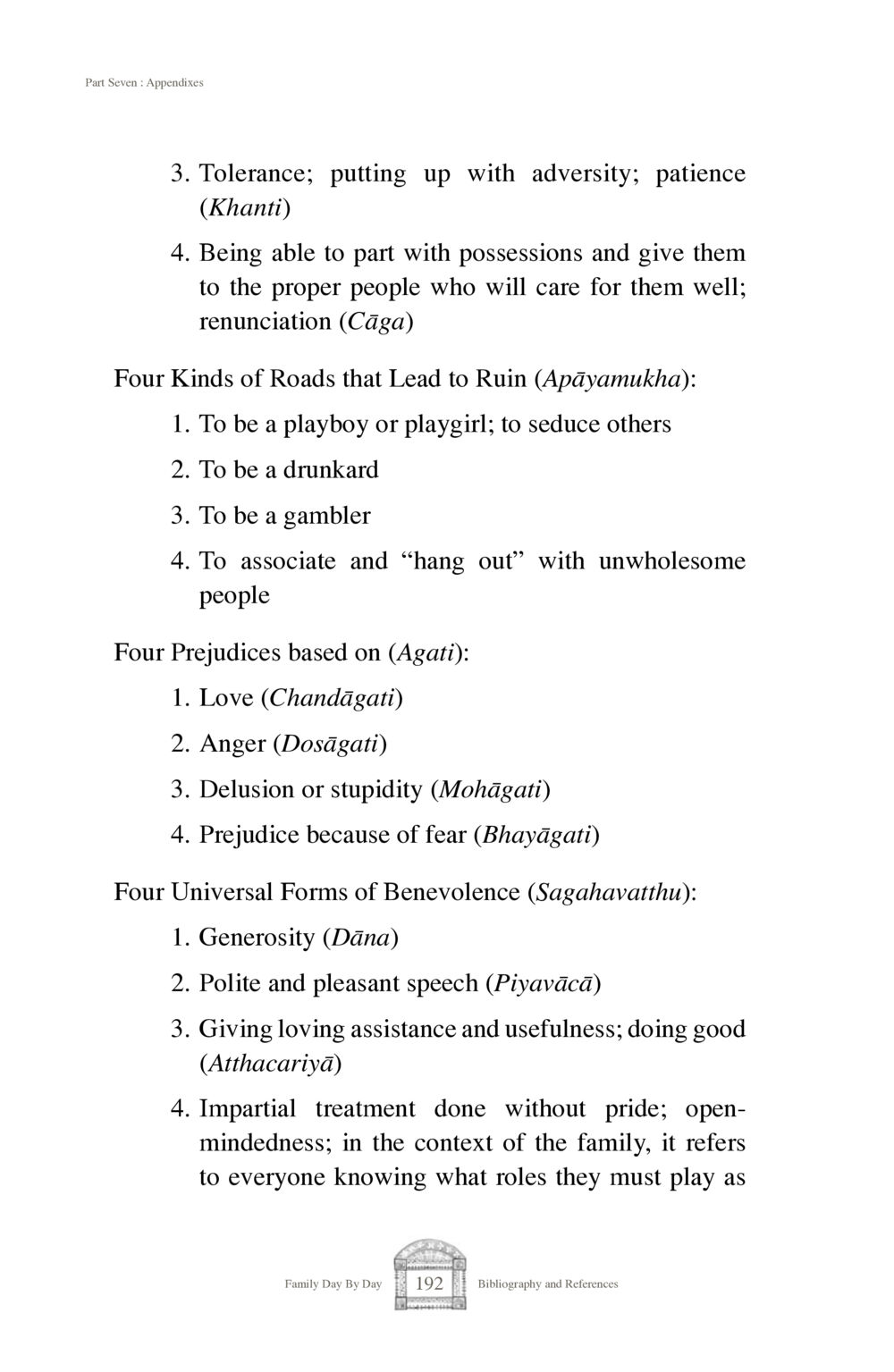Exploring Tolerance and Benevolence in Daily Life : หน้า 194/216
Family Day By Day : หน้า 194/216 A comprehensive overview of concepts like patience, renunciation, and universal benevolence, alongside roads leading to ruin and prejudices.
0 ครั้ง

สรุปเนื้อหา
In this section, we delve into the virtues of tolerance and benevolence, such as patience (Khanti) and renunciation (Cāga). The text highlights four detrimental paths leading to ruin, including indulgence in pleasures and unhealthy associations. Additionally, it outlines four prejudices stemming from emotions like love, anger, and fear. The four universal forms of benevolence emphasize the importance of generosity, kind speech, helpfulness, and impartial treatment, which contribute to a harmonious family and community life. Such wisdom guides us toward better relationships and personal growth. More insights at dmc.tv.
หัวข้อประเด็น
-Tolerance and Patience
-Renunciation and Its Importance
-Roads Leading to Ruin
-Understanding Prejudices
-Universal Forms of Benevolence
ข้อความต้นฉบับในหน้า
หน้าหนังสือทั้งหมด
























































































































































































































